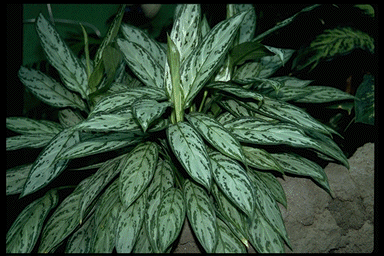|
THE JKL HERBAL /SUPPLEMENT REFERENCE GUIDE |
|
||||||
|
|||||||
Reprinted with permission from the book From Magic
to Medicine
Alphabetical Herb List
YAM (DIOSCOREA VILLOSA)From the plant called Dioscorea villisa L ... it is also known as the Mexican Yam or Wild Yam. It contains the precursors that serve as the basis for the body's production of DHEA.DHEA (Dehydroepiandrosterone) is produced by the adrenal glands ... it helps to reduce cholesterol and burn body fat, and may help increase muscle mass. DHEA-S is the most widely circulated hormone in the body and research indicates that high levels are associated with fewer free radicals. DHEA is often referred to as "the youth hormone" by the scientific community and is recognized as an anti-aging substance. It is most highly concentrated at the age of 25 (approx.) and sharply decreases with age. At the age of 80, it only produces 10-20% of what was produced at age 25. DHEA is called the "mother of hormones" because it is used by the body to manufacture many other hormones, including our sex hormones (estrogen, testosterone, progesterone, cortisone, etc.). The body produces DHEA and then converts it on demand to other hormones. A 1988 study at Johns Hopkins University showed a 50% reduction in arterial plaque in rabbits ... A study at Temple University revealed that supplemental DHEA was able to prevent breast cancer in mice that were likely to develop it ... A study in Guernsey, Britain showed that women who were likely to develop breast cancer had low DHEA levels up to nine years previous ... Doctors at the Medical College of Virginia revealed that atherosclerotic plaque was related to low DHEA levels. Maintaining DHEA levels is beneficial for improving memory, preventing Alzheimer's disease and osteoporosis in postmenopausal women. A 12 year study published by the respected New England Journal of Medicine in 1986 (315.1519-24) showed that men who were aged 50 to 79 gained the following benefits with a 100 microgram per deciliter increase of DHEA sulfate concentration ... 1) a 48% reduction in mortality due to cardiovascular disease and a 36% reduction of mortality for all reasons. Subjects with higher levels lived longer and had a much lower risk of heart disease. The rhizomes are the part of the plant that is used and according to one health expert it relaxes muscle spasms, promotes perspiration. It is also good for many female disorders like PMS and menopause-related symptoms. Wild yam is typically used for bilious colic, dysmenorrhea, nausea, menstrual cramps and menopausal symptoms (under debate). Available as a tincture, teas, capsules, pills and externally as a lotion/cream. Take capsules with a large drink of water (with or without food). CAUTION: May react with progesterone and/or estrogen. DOSAGE: A typical dose is 500 mg three times a day of dried extract.
Legend has it that Achilles used yarrow to treat the wounds of soldiers during the Trojan War. Yarrow contains chemicals like achilletin and achilleine which support it´s use as a treatment for wounds because they spur coagulation of blood. Several others have anti-inflammatory and pain relieving action i.e. menthol, eugenol, champhor, azulene, rutin, quercetin and salicylic acid. Others are antiseptic like tannins, terpeniol, and cineol. As a tranquillizer and sedative yarrow contains the hypnotic chemical thujone which some people have compared to the effects of marijuana. To use for treating wounds, press fresh leaves and flower tops into cuts and abrasions on the way to bandaging and cleaning them. To make an infusion use 1 to 2 teaspoons of dried herb per cup of boiling water. Steep for 10 to 15 minutes. CAUTION: No reports of harm from yarrow.
A hormone stimulant which increases blood flow to erectile tissues.
CAUTION: Should not be used by women or by persons with kidney disease or psychological disorders.
Can block nerve transmission between cells.
|
